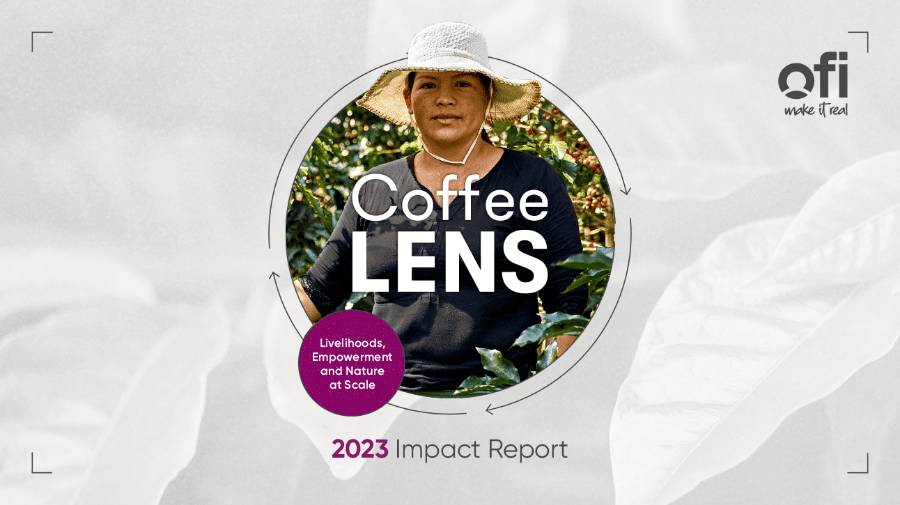Coffee Sustainability Report shows progress in multi-capital accounting and forest protection
Global food ingredients company ofi has released its annual Coffee LENS (Livelihoods, Empowerment, Nature at Scale) impact report, detailing progress in sustainable coffee production during the 2023 crop year. The report highlights advances in social capital valuation methodology, living income strategies, and forest conservation partnerships, alongside developments in digital traceability systems to meet incoming EU regulations.

Coffee LENS – Impact Report 2023 – © ofi
Social capital quantification methodology
A notable achievement detailed in the report is the completion of ofi’s first social capital impact valuation, conducted on a living income project supporting approximately 1,000 coffee farmers in Honduras. The analysis, which earned recognition as a finalist at the Reuters Sustainability Awards, demonstrated that every dollar invested generated eight dollars in social value across the 2021-2022 and 2022-2023 crop years.
Agricultural metrics and interventions
The company reports reaching over 115,000 farmers with technical training and agricultural inputs aimed at optimising yields and quality. Field teams have implemented regenerative agriculture practices across 84,000 hectares, more than doubling the land area under such management compared to the previous year. Digital systems are being employed to generate detailed greenhouse gas footprints for 23 coffee supply chains.
Forest protection partnerships
A significant new three-year sustainable forest management programme has been initiated in Côte d’Ivoire in partnership with IDH and JDE Peets. The collaboration aims to reduce pressure on protected areas including the Taï National Park and Cavally nature reserve, particularly crucial given recent coffee price increases spurring production revival in the region.
Digital traceability advancement
The report details extensive technical work on data and traceability systems, including:
- Registration of 16,000+ additional coffee farmers to the company’s digital farmer information system (OFIS)
- Development of an internal digital solution called ‘Track and Trace’ for farm-level traceability
- Implementation of polygon mapping for coffee sourced from farms over 4 hectares to meet EU Deforestation Regulation requirements
Climate impact measurement
Technical teams have generated detailed greenhouse gas digital footprints for 23 coffee supply chains and company estates using the AtSource Digital Footprint Calculator. The backend Excel model of this calculator has been certified by the Carbon Trust as capable of calculating product carbon footprints in alignment with key international standards including the GHG Protocol and ISO 14067.
Living income assessment methodology
The company has expanded its Living Income Calculator methodology to four additional coffee supply chains, enabling more accurate assessment of income gaps across seven origins. Analysis revealed significant living income gap hotspots in Mexico and Guatemala, where over three-quarters of surveyed coffee farmers earn below the living income threshold.
“The backdrop to our 2023 Impact Report was a year of unprecedented volatility for the coffee industry and it is coffee farmers who continue to bear a lot of the risk,” noted Vivek Verma, ofi’s coffee CEO. “Each year we learn how to make stronger choices that drive the most meaningful change on the ground and for our customers.”
The report indicates ofi is on track to meet EU Deforestation Regulation traceability and compliance requirements when obligations become applicable in 2025. The company aims to submit updated Science Based Targets in line with their corporate strategy by the end of 2024, following SBTi FLAG & GHG Protocol guidance.
- The full technical report detailing methodologies, metrics and progress against 2030 sustainability targets is available via the company’s website, here – Coffee LENS – Impact Report 2023.


